| |||||
| Decades: | |||||
|---|---|---|---|---|---|
| See also: | |||||
Events from 2013 in Switzerland.
| |||||
| Decades: | |||||
|---|---|---|---|---|---|
| See also: | |||||
Events from 2013 in Switzerland.

Switzerland, officially the Swiss Confederation, is a landlocked country located in west-central Europe. It is bordered by Italy to the south, France to the west, Germany to the north, and Austria and Liechtenstein to the east. Switzerland is geographically divided among the Swiss Plateau, the Alps and the Jura; the Alps occupy the greater part of the territory, whereas most of the country's population of 9 million are concentrated on the plateau, which hosts its largest cities and economic centres, including Zurich, Geneva, and Basel.

The four national languages of Switzerland are German, French, Italian, and Romansh. German, French, and Italian maintain equal status as official languages at the national level within the Federal Administration of the Swiss Confederation, while Romansh is used in dealings with people who speak it. Latin is occasionally used in some formal contexts, particularly to denote the country.
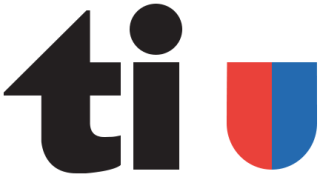
Ticino, sometimes Tessin, officially the Republic and Canton of Ticino or less formally the Canton of Ticino, is one of the 26 cantons forming the Swiss Confederation. It is composed of eight districts and its capital city is Bellinzona. It is also traditionally divided into the Sopraceneri and the Sottoceneri, respectively north and south of Monte Ceneri. Red and blue are the colours of its flag.

Raclette is a dish of Swiss origin, also popular in the other Alpine countries, based on heating cheese and scraping off the melted part, then typically served with boiled potatoes. Raclette cheese is historically a dish originating from the canton of Valais in Switzerland. This cheese from Valais benefits from an AOP. Raclette cheese is also a Swiss-type cheese marketed specifically to be used for this dish.

Valais, more formally, the Canton of Valais, is one of the 26 cantons forming the Swiss Confederation. It is composed of thirteen districts and its capital and largest city is Sion.
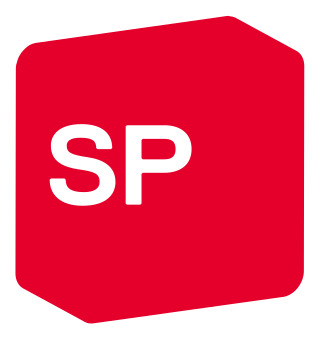
The Social Democratic Party of Switzerland, also called the Swiss Socialist Party, is a political party in Switzerland. The SP has had two representatives on the Federal Council since 1960 and received the second-highest number of votes in the 2023 Swiss federal election.
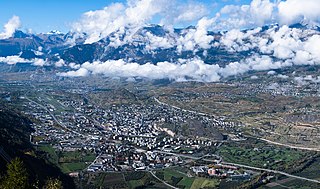
Sion is a Swiss town, a municipality, and the capital of the canton of Valais and of the district of Sion. As of December 2020 it had a population of 34,978.
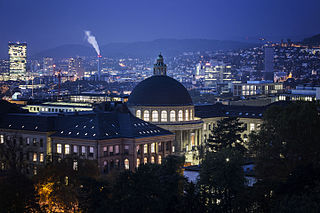
The education system in Switzerland is very diverse, because the constitution of Switzerland delegates the authority for the school system mainly to the cantons. The Swiss constitution sets the foundations, namely that primary school is obligatory for every child and is free in state schools and that the confederation can run or support universities.

Firearms regulation in Switzerland allows the acquisition of semi-automatic, and – with a may-issue permit – fully automatic firearms, by Swiss citizens and foreigners with or without permanent residence. The laws pertaining to the acquisition of firearms in Switzerland are amongst the most liberal in the world. Swiss gun laws are primarily about the acquisition of arms, and not ownership. As such a license is not required to own a gun by itself, but a shall-issue permit is required to purchase most types of firearms. Bolt-action rifles do not require an acquisition permit, and can be acquired with just a background check. A reason for the acquisition of a firearm is required to be issued an acquisition permit for semi-automatics. Permits for concealed carrying in public are issued sparingly. The acquisition of fully automatic weapons, suppressors and target lasers requires special permits issued by the cantonal firearms office. Police use of hollow point ammunition is limited to special situations.

Saint-Maurice is a city in the Swiss canton of Valais and the capital of the district of Saint-Maurice. On 1 January 2013, the former municipality of Mex merged into the municipality of Saint-Maurice.
Menznau is a municipality in the district of Willisau in the canton of Lucerne in Switzerland.

Lesbian, gay, bisexual, and transgender (LGBT) rights in Switzerland are some of the most progressive by world standards. Social attitudes and the legal situation have liberalised at an increasing pace since the 1940s, in parallel to the situation in Europe and the Western world more generally. Legislation providing for same-sex marriage, same-sex adoption, and IVF access was accepted by 64% of voters in a referendum on 26 September 2021, and entered into force on 1 July 2022.

The Zug massacre took place on 27 September 2001 in the city of Zug in the canton's parliament. Friedrich Leibacher shot dead 14 people before killing himself. Leibacher was armed with a civilian version of a Stgw 90, a SIG Sauer pistol, a pump-action shotgun, and a revolver, and wore a homemade police vest.
Eight referendums were held in Switzerland during 2009. The first was held on 8 February on extending the freedom of movement for workers from Bulgaria and Romania. The next two were held on 17 May 2009 on introducing biometric passports and the "Future with complementary medicine" proposal. A further two were held on 27 September on increasing VAT and the introduction of public initiatives. The final three were held on 29 November on banning the construction of new minarets, exporting weapons and the use of aviation fuel taxation.
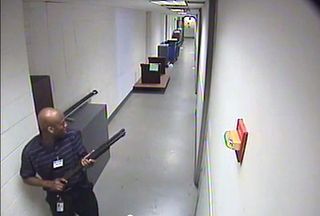
A mass shooting is a violent crime in which one or more attackers kill or injure multiple individuals simultaneously using a firearm. There is no widely accepted definition of "mass shooting", and different organizations tracking such incidents use different criteria. Mass shootings are often characterized by the indiscriminate targeting of victims in a non-combat setting, and thus the term generally excludes gang violence, shootouts and warfare. Mass shootings may be done for personal and psychological reasons, but have also been used as a terrorist tactic. The perpetrator of an ongoing mass shooting may be referred to as an active shooter.
On 27 February 2013, a gunman opened fire at the Kronospan wood-processing plant in the Swiss town of Menznau, killing four people. Five others were wounded, two critically. The gunman died during a struggle where another worker defended himself by throwing a chair at the gunman, then grabbed with both arms the gunman, during the struggle the gunman shot himself, although it was unsure if this was intentional or unintentional.

Viola Patricia Amherd is a Swiss politician who has served as a Member of the Swiss Federal Council since 2019, and as President of the Swiss Confederation for 2024 since 1 January. She is the head of the Federal Department of Defence, Civil Protection and Sport. Amherd was a member of the Christian Democratic People's Party (CVP/PDC) before it merged with the Conservative Democratic Party (BDP/PBD) to form The Centre (DM/LC) in 2021, which she joined.

Jean-Luc Addor is a Swiss-Italian lawyer and politician of the Democratic Union of the Centre (UDC) elected to the National Council in 2015 from canton of Valais. He is known for his critical stance on Islam. In 2017, he voted to introduce stringent immigration laws for third generation immigrants especially those from Muslim backgrounds. He was convicted for racism and incitement to violence in 2017. He opposed gay marriage in 2021 referendum.
Élisabeth Decrey Warner née Reusse-Decrey is a Swiss peace activist and politician. In 1998 she founded the humanitarian organization Geneva Call which set out to involve armed non-State actors in banning the use of landmines. She served as the organization's executive president until late 2017. Decrey Warner has been widely recognized for her peace efforts. She was nominated for Switzerland as one of the 1,000 women for the Nobel Peace Prize in 2005, in 2012 she was awarded the Hessian Peace Prize, and in 2013 she received the French Legion of Honour.
Switzerland has tobacco legislation defined at federal and cantonal level. It covers protection of the population against passive smoking, restrictions on tobacco advertising, warnings on packaging and taxes.